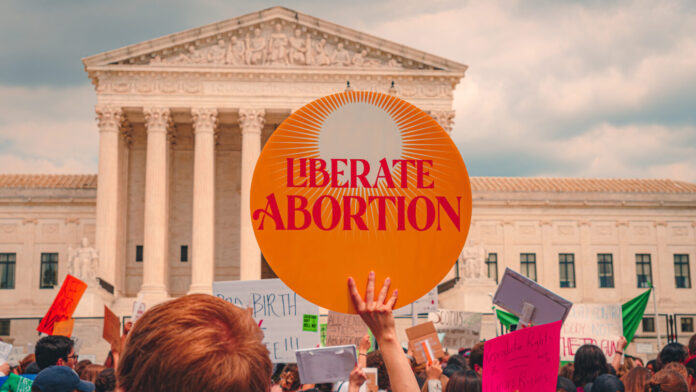This article is written by Gautam Badlani, a student at Chanakya National Law University, Patna. This article examines the provisions and judicial decisions relating to abortion in the state of Florida. This article also highlights the judicial position with respect to interplay between right to abortion and right to privacy by virtue of the state constitution of Florida. It further examines the judicial pronouncement of Dobbs v. Jackson Women’s Health Organization and gives an overview of Roe and Casey that were recently overturned.
It has been published by Rachit Garg.
Introduction
Abortion has been an issue of much scrutiny in the United States and has given rise to several debates. People are divided on the issue on the basis of their philosophies, life experiences, morals, beliefs and religious views. Conditions such as poverty, overpopulation and cost of living also affect the choice of people who seek an abortion. The existence of all such factors makes abortion a complicated issue.
In the United States, every state has its own abortion laws and abortion is permitted at varying stages across the different states. The restrictions on abortions include requirement for parental consent, informing the husband, mandatory counselling and waiting period and limited public funding.
Florida’s 15-week abortion law
Recently, Florida passed a law that prohibited abortion after 15 weeks of pregnancy. Prior to this law, abortion was prohibited after 24 weeks of pregnancy. Section 390.0111, Florida Statute provides that once the gestational age of the fetus exceeds 15 weeks, the physician cannot perform an abortion. The law defines gestation as the development of the embryo from the first day of the woman’s last menstrual period.
The law also provides certain exceptions to this 15-week limit. Firstly, if it is certified by two physicians in writing that abortion is necessary to save the life of the pregnant woman or to prevent any permanent and substantial bodily impairment to the pregnant woman, then the 15-week limit can be breached. Moreover, where another physician is not available for consultation, the recording of reasons in writing by a single physician would also suffice. Secondly, if two physicians certify in writing that in their reasonable medical judgment, the fetus suffers from a fatal fetus abnormality, then the pregnancy can be terminated even beyond the gestational period of 15 weeks.
Besides reducing the permissible abortion period, the Act also provided for constituting the fetal and infant review committees which would analyze the data related to mortality and morbidity of fetal and infants. The committee would also be required to submit annual recommendations to the Department of Health. The director of every medical facility in which abortions are performed is required to submit a monthly report to the concerned agency. Physicians performing abortions outside the medical facilities are also required to submit such reports.
Judicial challenges to the law
Florida’s new abortion law was challenged before a Florida Court. The single-judge bench blocked the law stating that it violated the privacy protection guaranteed by the state. An injunction was granted against the law as the court found that the law violated the constitution of Florida.
Subsequently, an appeal was filed by the state before the First District Court of Appeal. The injunction granted by the Circuit Court was rejected by the Court of Appeal. The case regarding the constitutionality of the law thereafter went to the Florida Supreme Court. The Supreme Court will decide the final fate of the law. Civil rights activists, supporters of reproductive groups as well as religious groups have challenged the law in courts. The new law may be challenged on grounds of legal freedoms, religious freedoms and violation of free speech of the clergy.
Regulations relating to abortion
Consent of the woman
Section 390.01111 lays down the criterion which has to be fulfilled in order to consider the consent of the woman undergoing abortion to be voluntary.
Firstly, the physician who is to perform the abortion procedure or the referring physician has to inform the woman, at least 24 hours before the procedure, of all the material risks that are associated with the decision of undergoing or not undergoing the abortion. The gestational age of the fetus at the time when the pregnancy is supposed to be terminated.
Secondly, the physician has to inform the woman of the risks to her as well as the fetus if she decides to carry the pregnancy to term.
State health programmes
Abortion is covered by the state health programme under the Affordable Care Act, 2010 only if the pregnancy results from incest, rape or abortion is necessitated by life endagerment.
Counselling Agencies
As per Fla. Stat. § 390.025(2), an agency providing counselling to any person regarding abortion has to firstly inform the person about the effects of abortion and also the alternatives to abortion. Moreover, where the person receiving the counsel is a minor, the agency must inform the parents of the minor.
The Counselling Agencies are mandated to register with the Agency for Public Health Administration. This law has been challenged as being violative of the Due Process Clause and Equal protection clause of the Fourteenth Amendment.
The person seeking an abortion has to recieve state directed counselling 24 hours prior to the abortion procedure. The counselling is aimed at discouraging the person from terminating the pregnancy. Moreover, a pre-abortion ultrasound is also mandated by law.
Privacy clause and the abortion laws
In Florida, the Supreme Court has often relied on the privacy clause of the state Constitution to uphold the right of women to get an abortion. Article I of the Constitution of the State of Florida deals with the rights guaranteed to the people of Florida under the state constitution. Section 23 guarantees the right to privacy and provides that every person has a right to be protected from government intrusion into their private life.
In re T.W.
In the case of In re T.W. (1989), a statute requiring that minors obtain parental consent before opting for an abortion was under consideration before the Florida Supreme Court. As an alternative, the statute provided that if the minor was able to convince the court that she was sufficiently mature to decide for herself, then the parental consent requirement could be waived.
Facts
- A minor had applied for the waiver of the parental consent requirement on the ground that she was mature enough to decide for herself and she would be subjected to abuse if her parents were asked to consent to her abortion. Moreover, she pleaded that her mother was ill and information about the daughter’s pregnancy would be an added burden on her.
- The trial court had given standing to the guardian ad litem (guardian appointed by the Court to suggest what solutions would best serve a child’s interests) and it was argued by the guardian ad litem that the portion of the statute which provided for a judicial bypass to the parental consent requirement was unconstitutional. The trial court had held that the alternative provided by the statute which permitted a judicial bypass to the parental consent requirement was vague and unconstitutional.
- Thereafter, the matter went to the District Court and the District Court held that the entire statute was constitutional as it failed to provide for a record hearing and did not lay down sufficient guidelines regarding the admissibility of the statute. Moreover, the statute did not provide for the appointment of a counsel to assist the minor.
Decision by the Court
- The court primarily found that the appointment of the guardian was improper as only the attorney general had the standing to appear on the appeal.
- The court then referred to the case of Roe vs Wade (1973) and held that a woman has a fundamental right to privacy and the right to make a decision concerning abortion is a part of the right to privacy.
- The court noted that the constitution of Florida guarantees the right to privacy independent from the federal constitution. Hence, in order to be considered valid, the abortion law must pass the test of both the federal as well as state constitutions.
- The right to privacy guaranteed under the state constitution is much more wider and strict than the right to privacy guaranteed under the federal constitution. While the federal constitution permits intrusion into the privacy of the citizens to preserve significant state interests, the state constitution requires the safeguarding of compelling state interests in order to justify the intrusion in privacy.
- The phrase “government intrusion” used in Section 23 is not preceded by words such as “unreasonable” or “unwarranted” and this draws out the intention of the legislators to make the privacy right as strong and strict as possible.
- The court noted that the burden of justifying the state intrusion in the privacy of the citizens was on the state and it could be discharged by proving before the court that the concerned legislation is to serve a state interest and the state interest is accomplished by employing the least intrusive measures.
- The Court noted that during the first trimester (upto 12 weeks), the state cannot significantly restrict the right of women to seek an abortion. After the end of the first trimester, restrictions can be imposed by the state only in the least intrusive manner.
- Under the state constitution, the interest of the state becomes compelling only upon viability, that is, when the fetus is able to live meaningfully outside the womb, even if through medical measures.
- However, the statute in question intruded in the privacy of pregnant women from conception to birth. The court noted that such a significant intrusion in the privacy of the minor was not necessary to safeguard the health of either the minor or the fetus.
- Under Florida law, a minor can make life-and-death decisions concerning herself without parental consent and similarly can place her child for adoption without the consent of her parents. In such a scenario, mandating a minor to obtain parental consent before undergoing an adoption does not appear to protect compelling state interests.
- Resultantly, the result of the District Court was affirmed by the Supreme Court and it was held that the statute violated the state constitution.
Landmark Judicial decisions
Roe v. Wade
In the case of Roe v. Wade (1973), a Texas abortion law that proscribed abortion unless it was required as a life-saving measure was challenged before the US Supreme Court.
Facts
- A class action suit was initiated by Roe, a pregnant woman, challenging the law. It was contended by her that she was not permitted to undergo an abortion under the abortion laws of the state as the pregnancy did not threaten her life.
- Moreover, she did not have the resources to travel to any other state and terminate her pregnancy safely. She contended that the Texas statute violated the rights guaranteed to her by the First, Fourth, Fifth, Ninth, and Fourteenth Amendments.
- The state of Texas contended that at the stage of conception itself, life begins and exists throughout the pregnancy. Therefore, a compelling state interest is involved in protecting that life.
- The District Court had held that a conjoint reading of the Ninth and the Fourteenth Amendments clarified that single women as well as married couples had the right to decide whether to have children or not. The Texas statute was vague and unconstitutional as it unreasonably intruded in the rights of the plaintiffs.
Decision of the Court
- The Court held that the right to privacy guaranteed by the Constitution was wide enough to include the right of the women to decide whether or not to undergo an abortion. If this choice is completely denied to a woman, it could not only cause medical harm to her but also psychological and mental trauma.
- However, the right to privacy is not absolute and can be regulated, to some extent, by the state. Thus, the right to abortion is unqualified and may be reasonably restricted to protect the interests of the state.
- A regulation can limit fundamental rights only if it safeguards certain compelling state interests. The state laws can be sustained only if the determinations of the state to protect potential life are constitutionally justified.
- The word “person” used in the Fourteenth Amendment to the US Constitution would not include an unborn child within its scope. An unborn child has never been recognized as an absolute person in law.
- The interest of the state in protecting the potential life grows as the pregnancy advances toward the complete term. It becomes necessary to determine the stage at which the interest of the state becomes compelling.
- The Court held that the concerned law violated the Due Process Clause of the Fourteenth Amendment and hence was unconstitutional. The Court noted:
- Before the end of the first trimester, the decision regarding abortion must be left to the pregnant woman and the judgment of her physician.
- Subsequent to the first trimester, the State can, for safeguarding the state interests, impose certain reasonable restrictions on abortion.
- It is subsequent to viability, that the State may proscribe the abortion procedure except where it is needed to safeguard the life or health of the pregnant woman.
- The court thus concluded that the Texas law was unconstitutional as it restricted all abortions except those which were necessary to save the life of the mother and made no distinction between abortions sought at an early stage of pregnancy and those which were sought at a later stage.
Casey v. Planned Parenthood
Facts
- In the case of Planned Parenthood of Southeastern Pennsylvania v. Casey, Governor of Pennsylvania (1992), certain provisions of the Pennsylvania Abortion Control Act provided:
- that a woman seeking abortion must provide informed consent and specify that she was informed about certain details 24 hours prior to the abortion.
- Consent of atleast one parent was mandated in case of abortion of a minor.
- The provisions also provided for a judicial bypass to parental consent for abortion of minor.
- The woman was also required to inform her husband of the abortion.
- These provisions were challenged as being unconstitutional.
- The District Court had held that all the aforementioned provisions were unconstitutional.
- The Court of Appeal had, on the other hand, held that only the requirement to notify the husband was unconstitutional and the other requirements were upheld.
- Subsequently, the matter went to the Supreme Court.
Decision of the Court
- The Court, while reaffirming the decision of Roe v. Wade held that the state interests in the protection of life do not justify any plenary overriding of individual liberty.
- It is only at the state of viability that the state’s interests pass the constituonal justification to ban abortions.
- Roe dealt with a controversial issue and such decisions have a strong precedential value to dissuade efforts to overrule them.
- However, it is pertinent to note that the trimester guidelines laid by the Court in Roe were read down in this case.
- Instead, the Court laid down the undue burden test to determine the validity of the abortion law. The undue burden test implies that the state can impose only limited restrictions on the exercise of right to abortion. This test is used by the Court to determine the permissible restrictions.
- The Court held that the State can take such measures which would inform and persuade the woman to chose childbirth and not undergo abortion. However, these measures must not amount to undue pressure.
- The Court held that if the object of the law is to put obstacles in the women’s path and prevent her from seeking abortion at the pre-viability stage, then the statute would not survive the test.
Dobbs v. Jackson Women’s Health Organization (2022)
Facts
- In the case of Dobbs v. Jackson Women’s Health Organization (2022), the Mississippi state law prohibiting abortion after the gestational age of 15-weeks, except in case of medical emergency or severe fatal abnormality, was challenged before the US Supreme Court.
- The District Court had enjoined the enforcement of the state Act and the Fifth Circuit had affirmed the decision of the District Court.
- The respondents had argued that the historical stand on abortion did not matter while determining whether a right is protected by the Fourteenth Amendment or not. Moreover, the fact that several states had not criminalised pre-quickening abortion in the late 18th and 19th century supported the argument that history supported abortions.
- The primary contention of the appellants was that the power to decide on the regulatory scheme for abortion should be left to the Legislative.
- The appellants pleaded that neither the constitutional structure nor the US history and traditions recognise right to abortion and hence the State has the authority to prohibit even the pre-viability abortions.
Decision of the Court
- The Due Process Clause of the Fourteenth Amendment provides protection to two kinds of substantial rights. The first category of rights relates to the first 8 Amendments and the second category relates to such fundamental rights which are not expressly mentioned in the Constitution.
- In order to determine whether a right is covered by either of the categories, it becomes essential to ascertain whether the right is deeply rooted in the nation’s history.
- The Court noted that the right to obtain abortion is neither expressly guaranteed by the Constitution nor deeply rooted in the history and tradition of the United States. There was no American law until the later 20th century which provided for a constitutional right to abortion.
- In common law, abortion was regulated at all stages and was made a criminal act beyond a certain stage.
- The Court thus ruled that abortion is not protected by the Fourteenth Amendment.
- In respect to the landmark cases of Roe and Casey, the Court noted that these cases failed to recognise the fact that the balance between the interest of the woman and the interest of a potential life may be interpreted differently by the people of different states.
- Hence, the power to decide on the desired regulation on abortion should be left to the elected representatives of the people.
- In respect to the principle of stare decisis, the Court held that it does not imply an inexorable command and the principle is the weakest when it comes to cases involving the interpretation of the Constitution. The court noted that there have been several instances where the Court had overturned established precedents.
- On the basis of the aforementioned analogy, the Supreme Court of the United States overturned the judgments of Roe v. Wade and Casey.
- The right to abortion not being a fundamental right, can be subjected to legitimate regulation by the State and such regulations cannot be read down by the Court on the basis of its own economic and social beliefs.
- A law regulating abortion would have a strong presumption in the favour of validity.
- However, the Court expressly pointed out that the judgment concerned only the constitutional right to abortion and did not affect any established right.
- The Court concluded that the Mississippi abortion law was based on the legitimate interests of the state in protecting potential life and the Gestation Age Act, 2018 was based on rational considerations. Thus, the Court upheld the Constitutional validity of the state law.
Dissent
- The dissenting opinion was given by Justices Breyer, Sotomayor and Kagan.
- The dissenting judges were of the opinion that Roe and Casey had strived for a balance between the woman’s right to abortion and the state interests in the life of the fetus. Roe v. Wade had itself recognized state interests in protection of fetus life and thus allowed more restrictions in respect to abortion as compared to other rights which are derived from the Fourth Amendment. In light of this balanced approach, there was no need to overrule the Roe judgement.
- The judges apprehended that the majority ruling empowered the states to enact laws banning abortions completely from the inception itself and this could force a woman to carry to term a preganancy resulting from rape or where the fetus is afflicted with life threatening diseases.
- Some States could prevent women from traveling to other states to get an abortion and could also restrict access to abortion medications.
- The dissenting judges further fear that the test of historical relevance could be used to erode further constitutional rights.
- The dissenting judges noted that historical support for abortions rights should not have been considered by the Court and the focus should have been whether the right to abortion is protected by the Fourteenth Amendment. Historical support prior to Fourteenth Amendment would have rendered the mandate of the Fourteenth Amendment a mere reaffirmation of existing practice.
- The undue burden test laid down in Casey was rightly founded and did not gave rise to any major complexities.
- Lastly, the majority opinion failed to recognise that the principle of stare decisis is aimed at Instituonal and legal stability. They did not consider the impact on overruling Roe and Casey on the life of women.
Conclusion
The various states have various abortion laws as per their own legal systems, societal beliefs, and values. However, it is necessary to strike a balance between the values and goals. The goal of society is to protect individual autonomy and privacy while also securing the state’s interest in potential life.
The constitution of Florida is unique as it confers a very broad privacy right on the people. Privacy considerations are bound to influence the abortion laws of Florida and would be reflected in the judicial scrutiny of the statutes. In determining the validity of the 15-week abortion ban in Florida, the Florida Supreme Court will also consider the precendential value of the judgment of In Re T.W.. With Roe and Casey overturned, the judgment of the state Supreme Court with respect to the constitutional standing of the abortion law will have multifarious consequences.
Frequently Asked Questions (FAQs)
What is the equal protection clause and due process clause of the Fourteenth Amendment?
The Fourteenth Amendment confers the right to equality on the people of the United States and provides that they should not be discriminated against by the state without any rational basis. This is known as the equal protection clause. Recognizing that some degree of classification may be necessary, the Amendment provides that a certain level of classification will be permitted provided the State is able to justify the rational basis of the classification.
The due process clause contained in the Fourteenth Amendment forbids the state from depriving any person of his life, liberty, or property without due process of law. The due process includes both substantive as well as procedural due process.
The due process clause has been interpreted by the courts to be broad enough to protect those rights which are not expressly mentioned in the Constitution, such as the right to privacy and right to marry. Several individual rights, such as the right to bear arms and practice one’s religion, are rooted in the due process clause.
How many US states ban abortion?
Abortion is severely regulated and restricted in 14 US states. Some states, such as Albama and Arkansas do not even provide an exception to the abortion ban for rape victims and instances of incest. Georgia bans abortion after the sixth week of pregnancy. Almost all states regulate abortion and ban it after a certain stage of pregnancy. The variation among the state laws is by virtue of the time duration after which the pregnancy is restricted.
References
- https://supreme.justia.com/cases/federal/us/410/113/
- https://www.law.cornell.edu/supremecourt/text/505/833
- https://www.guttmacher.org/fact-sheet/state-facts-about-abortion-florida
- https://www.nytimes.com/interactive/2022/us/abortion-laws-roe-v-wade.html
Students of Lawsikho courses regularly produce writing assignments and work on practical exercises as a part of their coursework and develop themselves in real-life practical skills.
LawSikho has created a telegram group for exchanging legal knowledge, referrals, and various opportunities. You can click on this link and join:
Follow us on Instagram and subscribe to our YouTube channel for more amazing legal content.








